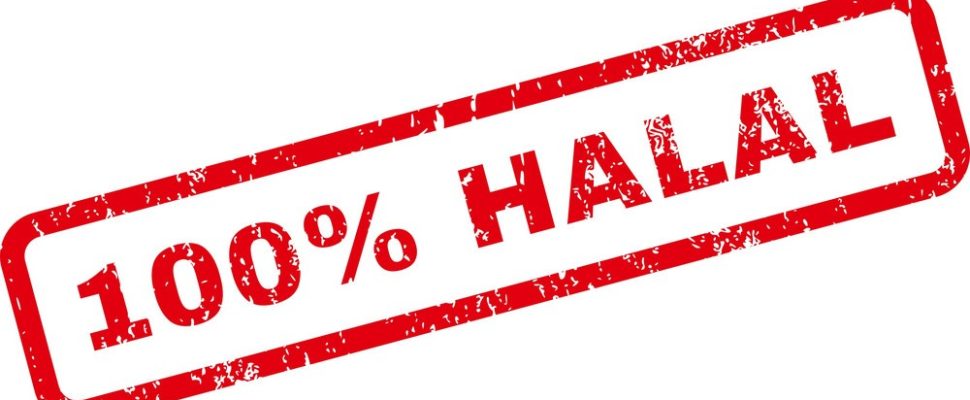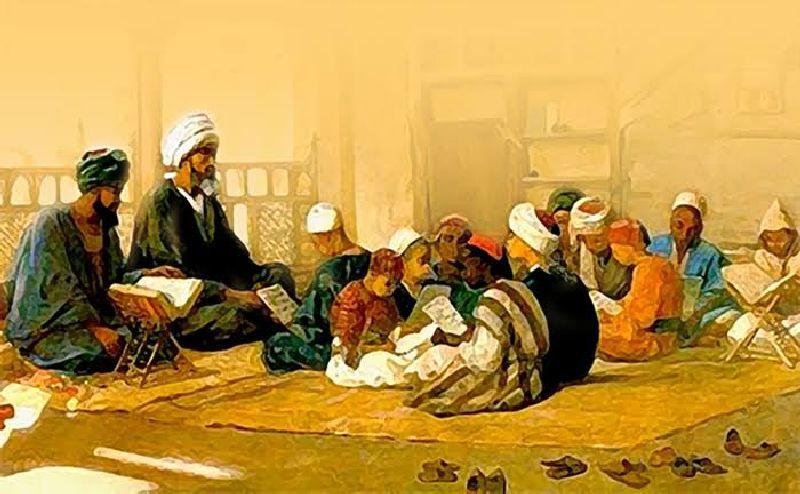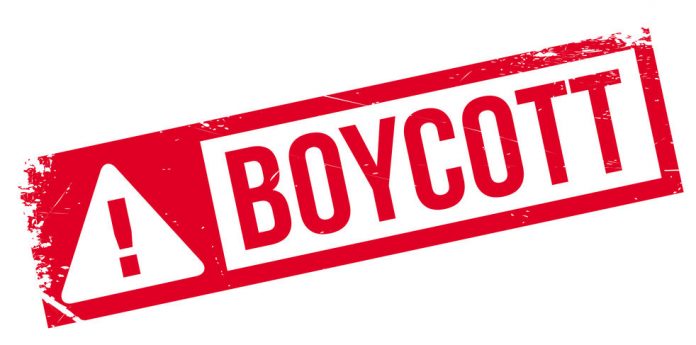RESPONSIBILITY OF MUSLIMS: HALAL MEDICINE
Speech of Dr. Hüseyin Kâmi BÜYÜKÖZER in the Halal Summit of 20 July 2019:
When the concept of “Halal Medicine” is inquired, there are many positive and negative pre-acceptance. The reason of this difference depends on the perspective of people about the concepts of Halal and medicine. The industrial revolution that started in the 19th century with a growing speed has led medicine and cosmetic sectors to meet with mass production. However, Islamic societies that could not develop their traditional perspective on the use of medicine and cosmetics have been considering these products only about their benefits and harms and could not be able to respond this capitalism-based development by appropriate mechanisms.
The issue of Haram is defined in Al-Maidah – 90, Al-Baqarah – 173, Al-Maide – 3, Al-En’am – 145, En-Nahl – 115 as alcohol, dead animals (carrion), shed blood, pork, animals slaughtered not in the name of Allah, and strangled, shot, fallen from above, cuckold, torn by the monster and not cut while alive and the animals that did not cut according to Islamic way. These restrictions should also be considered for Halal and Haram in medicine and cosmetics.
The alcohol which is restricted by Islam is the ethyl alcohol that causes unconsciousness by inebriation. Ethyl alcohol has a common-use in pharmaceutical and cosmetic making, especially syrup, spray, inhaler and tablet formulations as a solvent, carrier and binding molecule. There is no exactly the same alternative of ethyl alcohol yet. When water, ether, glycerin, and other alcohols are used instead of ethyl alcohol, it causes to increase of costs, toxication and decrease of bioavailability and pharmaceutical forms of drugs. On the other hand, it does not mean that the alternative cannot be found just because it is not available for today. Therefore, before the use of ethyl alcohol-containing medicine, the necessity of it should be questioned.
Fetus and placentas of human or animal origin are commonly used for anti-aging and cosmetics. The use of these is considered the use of dead animals (carrion). Because they are obtained from Haram sources, the use of them is not appropriate for Muslims.
Collagen, gelatin, cysteine, etc. are commonly used animal-based products. If the source is Halal and the manufacturing process does not contain any inconveniences, they can be used. But if it is obtained from a Haram source, Halal alternative of it should be requested and if it is available, should be used.
Spilled blood is forbidden in the Holy Qur’an without caring about its origin. One explanation of this prohibition is mentioned as the use of it by Araps of Jahiliyyah as a nutrition source. Nowadays, people are used for commonly-utilized blood and blood-based products as voluntary blood donors. Because these products can only be used for the medical necessities, there is no problem to utilize it within the prohibition circle of the Qur’an.
Pig is currently used as a source of gelatin, enzymes, hormones, and emulsifiers (adjuvants). While gelatin and emulsifiers are used as carriers, binders and thickening molecules, enzymes and hormones are used directly in the form of pharmaceutical raw materials for medical production. Enzyme and hormone preparats and capsule drugs are examples of this. Although fish gelatin and vegetable-based emulsifiers are used as an alternative to pig-derived gelatin; the cost of products obtained from them is high and capsule strength is not at the desired level that causes them to be avoided for the use of each drug. The alternative to enzymes and hormones obtained from pigs is other animals. The solution to this issue should be based primarily on the use of sources of halal animal and plant origin.
The concept of “Halal” that does not provide a meaningful concept for Western and Orthodox medical world is the reflection of “Tawhid” which is the basic principle of their existence for Muslims.
The most important problems, which we have experienced in placing the concepts of halal and haram in the part of our daily-lives regarding our health, are forgetting that Allah is the absolute source of healing (Shifa) and a lack of Qur’anic consciousness. As a result, the concepts of halal-haram are not developed and only the goodness of this world is aimed.,
The lack of understanding of being halal and tayyib in the production of a pharmaceutical product is an important problem for Muslims. As in all other fields of production, production costs are over-prioritized and the cruel rules of the market economy are applied.
The experiences we faced during the consuming period of production demonstrate that Muslims do not have a consumer culture, the concepts of need and necessity are not embedded and a common lack of satisfaction. With the effect of capitalist policies of “consume for the sake of consumption” in all spheres of life, Muslims cannot engage in a conscious act of consumption. Due to all these deficiencies, the demand for a sufficient halal product from Muslims is not revealed in most countries. This also applies to medicine.
Pharmaceutical companies have not seen and will not see the Islamic community with another sensitivity rather than the expansion of the market economy. The understanding of medicine which seeks the healing from other things rather than Allah is not an Islamic understanding. However, products defined as medicine and nutritional support, which are only the means of searching for causes and healing, should be products that do not contradict the Muslims’ covenant.
Nowadays, these products’ production methods, materials used, final product classification, reasons for use and durations should be evaluated and differentiated sharply by the support of scientific studies.
Being considered as economic and political aim, medicine is utilized as one of the most active weapon sources of money and life. The logic and rules of this market for the West is the ”legal dependency market”. They will not want to change the dynamics and arguments of this market and will always slander all the potential alternatives.
Moreover, this system puts quotas and barriers on the production and distribution markets which it was not able to assimilate. This is relative especially for the Far East, Iran, China, Indonesia, Malaysia and Indian products.
Prioritization of Halal and Tayyib raw materials and adjuvants can be realized only by Muslim nations’ consciousness and demands. Otherwise, empirical separation of existing products and classifications that cannot go beyond simple detections are encountered, which leads us to dead ends.
Our efforts should be based on ensuring that the products are prepared according to the standards and sensitivity of our belief system and ensuring the continuation of it rather than producing an alternative. We must set our own standards and prioritize that they are original and not contradicting with the dynamic Islamic thought.
What is tried to be put forward here is the discussion of certain standards by the scientific councils for the formation of acceptances and rejections, and the establishment of a common mind and mental power that will form unity among Islamic societies. There is not yet a center that meets the demands of halal medicine and cosmetics for all Muslims worldwide.
If everyone follows his own interpretation about medicine, this would lead us to end with chaos, because we cannot perceive the drugs as like the food. There are preferences in food and supplies and this is natural. However, for drugs, there is the need for experts, necessities based on the conditions and intentions. In other words, the decision cannot be left to the patient for all the cases.
The fact that the prohibited things are clear in the light of verses and their use is subjected to the necessary conditions does not permit free use. This explanation demonstrates the necessary question of the concept of “Halal” at every stage of production from design to consumption as well as the education of medicine and pharmacy. Expecting the choice of sensitivity from the individuals puts a full sense of polarization in the production-distribution markets and distrust to specialist staff (doctor and pharmacist).
In an age where everything is digitized and expressed in paradoxical curves; being straight like “Alif”, standing erect and reaching to Allah, will make us step forward. It protects us from the suspicious behaviors of mountebanks, exploiters and the speakers of many zeros who see “Halal” concept as a market. It prevents the pollution of our good and clean thoughts for humanity.
As a result, “Halal” is an important concept of our lives in the fields of food, medicine, cosmetics and nutritional supplements that should not be neglected by Muslims and should be paid maximum attention. It is the responsibility of all Muslims to clarify this issue. ”





